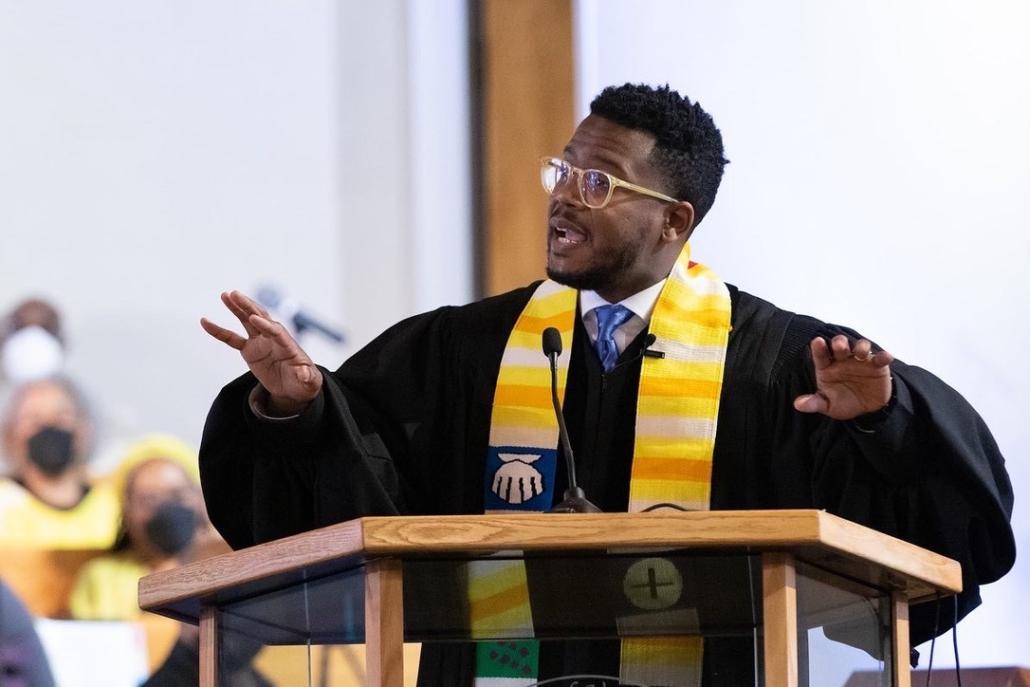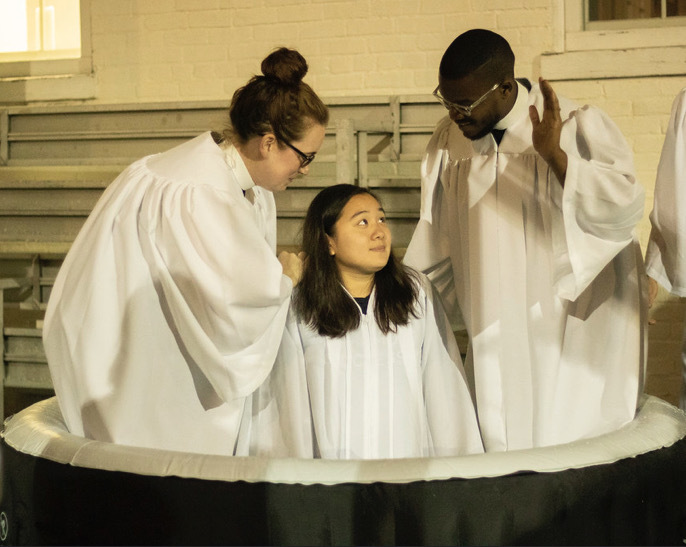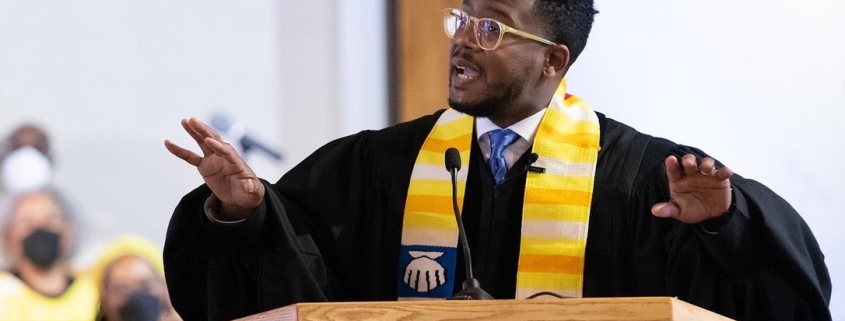New religious life associate dean joins staff

Wednesday, Oct. 26 was Rev. Brandon Harris’ third official day as USC’s associate dean of religious and spiritual life. His office was still bare, though he found the time to move his two gray couches to the corner of the room — just in front of the door. Faint jazz music spilled into the lobby of room 106 in the University Religious Center.
Raised in Rochester from 1995 to 2009, Harris grew up in a Pentecostal home but a multi-faith family; his uncle was an imam — a person who leads prayer in a Mosque — and others were Protestant, Catholic or secular. His father is a sixth grade teacher and his sister, along with all of his uncles, are professors.
“[Becoming Associate Dean of Religious Life] was a big surprise in the storyline of my life. We were very comfortable in D.C., and my wife received an opportunity in L.A.,” Harris said. “I was here in L.A. preaching at a church, and I saw the application while I was sitting in LAX, and before I got on my flight, I submitted my résumé.”
As Harris grew up and questions about his faith mounted, he made the decision to leave the Pentecostal tradition during the four years he spent at Lincoln University, a historically Black college in Pennsylvania. At Lincoln, he grew close with a professor from his Introduction to Religion class, Methodist minister Dr. Mel Leaman.
“He was really cool, he would hang out on the quad, throw footballs with students. He’d be in the dining hall. I was like, ‘This guy is a normal human being! He’s religious. There’s something to this,’” Harris said.

In his office, Harris would question Leaman about his faith constantly and explored what it meant to be a person of faith. One day, Leaman offered Harris an intern position at his Methodist church — and he accepted.
Coming to USC was a surprise to Harris, he said, especially since administrative positions such as these have little turnover. However, he was eager to engage in the Office of Religious and Spiritual Life’s mission.
“Fifty percent of our students identify as secular, non-denominational. So what does it mean to be an Office of Religious Life?” Harris said. “I wanted to join a team that was thinking about the future of religion that was willing to be innovative and creative and willing to think outside of the box.”
Harris first took note of the innovative work at ORSL during his time at Georgetown University as a chaplain of the law school, a position he took after earning his master’s degree from Emory University in 2016.
During his time at Emory, Harris was officially ordained as a Baptist minister at Atlanta’s Ebenezer Baptist Church, known for one of its former co-pastors, the Rev. Dr. Martin Luther King Jr. and United States Sen. Raphael Warnock, the current senior pastor at Ebenezer Church, along with many other church members helped shape Harris’ outlook on life.
“For me, [Ebenezer Baptist Church] was a place that, when I was new to a new city, when I was new to the South, it was a place that became home,” Harris said. “It taught me to balance the commitment to social justice, a commitment to a deep sort of spirituality, and yet also being engaged in the world.”
When he arrived at the Georgetown law school, Harris converted a Bible study group attended by three people into a social justice book club which grew to about 15 to 20 people. While the book club first examined social justice from a spiritual perspective, Harris expanded the conversation to people of any belief system.
Harris moved on from Georgetown and served as the Senior Minister of the Peoples Congregational United Church of Christ in 2019. During the coronavirus pandemic, Harris conducted 51 funeral services.
Now, as an associate dean of religious and spiritual life, Harris’ role is to bring his attention to the needs of students at USC regardless of their belief system. This consists of duties such as individual counseling, creating programs for students and helping oversee over 80 student religious groups on campus. Reverend Harris also hopes to provide support for students of color at USC.
“[The Rev.] Howard Thurman says that our main work is to help us find our common humanity,” Harris said. “So that’s my job, to help us find our common humanity: what makes us more alike than what makes us different. So I can enter into a mosque, I can enter into a synagogue, I can go to puja, I can enter into relationships with people who are from different backgrounds because we share a common humanity.”
Following in the footsteps of Rev. Dr. Thurman is something Harris and Dean of Religious Life Varun Soni have in common.
“He walks in the footsteps of this amazing person who was a chaplain, was a professor and was a civil rights leader,” Soni said. “We all walk in the lineage of the people who we admire. But, I think what we can do as university professionals is create new lineages for our students to walk into.”
To Associate Dean of Religious Life Vanessa Gomez Brake, Harris was a perfect fit for the job from the start — the only person among all of the initial screening candidates whom she rated a 10 out of 10. Thanks to a document Associate Dean Gomez Brake spearheaded to help in his transition, Harris’ next few months will be filled with meetings with student religious groups, campus religious directors and the campus cultural centers.
“What I found with him amongst the other candidates was [that] our conversation flowed naturally,” Gomez Brake said. “[Our work] can be so challenging at times. I need someone who can just be present for me as well, because we provide care for each other in our professional setting. We provide each other support for those tough times.”

